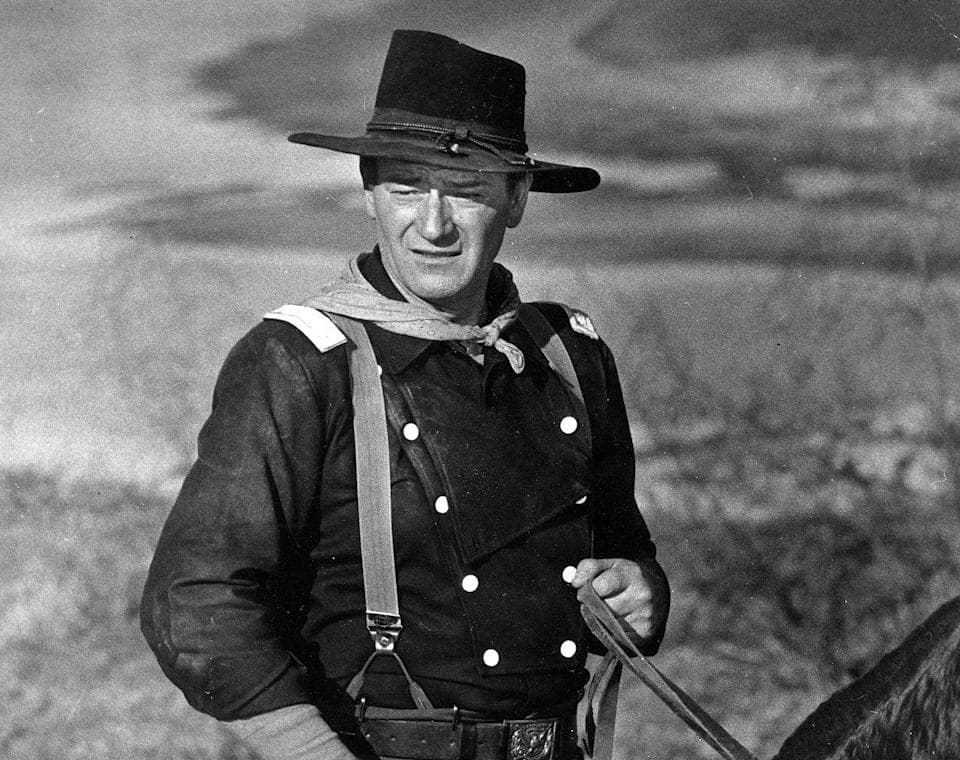
A Plea for Order Amidst the Urban Cacophony
Ah, John Wayne, a name that conjures images of rugged landscapes and unwavering resolve, yet here we find him venturing into the sonic terrain with his song, “Call the Police”. Released in the autumn of ’73, a time when the world was navigating the tailwinds of social change and the airwaves were thick with a diverse tapestry of sounds, this particular track, while not scaling the dizzying heights of the Billboard charts, peaking at a modest position just outside the Top 100, offers a fascinating glimpse into the anxieties and undercurrents of the era.
The story behind “Call the Police” is as intriguing as the artist himself taking on a musical endeavor. While John Wayne was, of course, an icon of the silver screen, his foray into music was perhaps less widely known but no less heartfelt. It wasn’t a calculated move to conquer another artistic realm, but rather, it seemed to stem from a genuine desire to express observations and feelings through a different medium. One can almost imagine him, after a long day on set, perhaps strumming a guitar and finding a melody that echoed the concerns he felt about a changing world.
The lyrics of “Call the Police” paint a vivid picture of urban unease. It speaks of a growing sense of disorder, of a world where the familiar comforts of peace and security seem to be slipping away. Lines likely touched upon the anxieties of rising crime rates and a perceived breakdown of social order – themes that resonated with many during that period. Think back to the news headlines of the time, the discussions around the dinner table; a sense of things feeling a little less certain, a little more frayed around the edges. This song, in its own way, became a quiet commentary on those feelings, a yearning for the reassurance that help was just a phone call away.
While John Wayne‘s musical career was brief, “Call the Police” stands as an interesting artifact of its time. It’s a reminder that even those most associated with one form of artistic expression often have other creative yearnings. It’s a song that perhaps didn’t ignite the charts but might have sparked a quiet nod of recognition from listeners who shared its concerns. It wasn’t about flashy production or soaring vocals; it was about a message, delivered in a straightforward manner, tinged with a sense of urgency.
The album from which “Call the Police” hailed, simply titled “America, Why I Love Her”, was more of a spoken-word tribute to the nation, with musical interludes. This context further illuminates the nature of “Call the Police”. It wasn’t conceived as a standalone pop single aiming for the top of the pops, but rather as a piece within a larger narrative, a moment of reflection on the state of the country and the challenges it faced.
Listening to it today, one can’t help but feel a pang of nostalgia for a time when such earnest expressions of concern found their way onto vinyl. It serves as a gentle reminder that the anxieties and hopes of one era often echo through the corridors of time, finding new resonance in our own. “Call the Police” by John Wayne may not be the first song that comes to mind when reminiscing about the music of the early seventies, but it’s a piece worth remembering, a quiet voice from a larger-than-life figure, reflecting the worries of an era gone by. It’s a testament to the fact that music can capture not just moments of joy and celebration, but also the subtle anxieties that weave their way through the fabric of our lives.